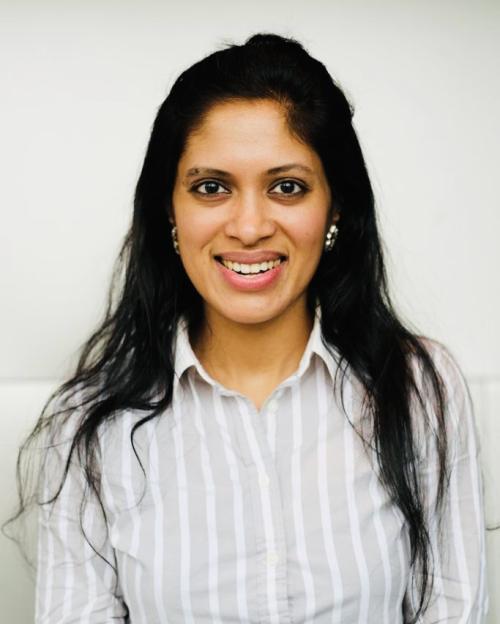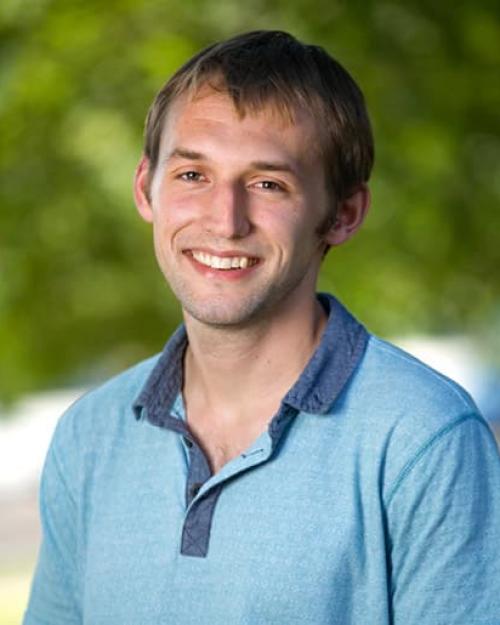Researchers studying a range of topics including new feature detection tools for signal processing, computational de-randomization and machine learning applications for health care and infrastructure are among the 11 Cornell faculty members who have recently received National Science Foundation Faculty Early Career Development Awards.
Over the next five years, each will receive approximately $400,000 to $500,000 from the program, which supports early-career faculty “who have the potential to serve as academic role models in research and education and to lead advances in the mission of their department or organization,” according to the NSF website.
The recipients are:
Alex Townsend, the Goenka Family Assistant Professor of mathematics in the College of Arts and Sciences (A&S);
Rachit Agarwal, Eshan Chattopadhyay, Chris De Sa and Owolabi Legunsen, assistant professors of computer science in the Cornell Ann S. Bowers College of Computing and Information Science;
Yudong Chen, Damek Davis and Madeleine Udell, assistant professors of operations research and information engineering in the College of Engineering;
Ziv Goldfeld and Kirstin Petersen, assistant professors of electrical and computer engineering (Engineering); and
Atieh Moridi, assistant professor of mechanical and aerospace engineering (Engineering).
Townsend aims to further his study of computational mathematics for rational functions, with two main objectives: develop new feature-detection tools in signal processing that are useful in classification tasks, including arrhythmia and seizure detection from electrocardiogram signals; and use rational neural networks to get highly accurate partial differential equation discovery, leading to new models of complex fluids. An educational component of the project includes a novel undergraduate curriculum design and outreach to local high schools.
Agarwal will work on designing more predictable data center networks. Such networks, which are currently unpredictable and inefficient, will enable systems that are not only correct by design, but also achieve orders of magnitude better performance and efficiency than today’s systems. This project introduces a fundamentally new service model – communication synchrony – that enables data center networks to guarantee bounded, predictable data transmission times. Educational and outreach activities will include creation of publicly available pedagogical materials and tools.
Chattopadhyay will use his award to further his study of pseudo-randomness, focusing on two main objectives: unconditional de-randomization (addressing the question of whether randomness is necessary in efficient computation); and extracting pure random bits from defective sources of randomness (including constructing better extractors in realistic models of defective random sources). The project also features activities designed to encourage undergraduates from disadvantaged backgrounds to choose computer science as a major.
De Sa will use his award to further his studies into artificial intelligence, with the goal of building new general statistical inference algorithms that will still run efficiently, even on very large datasets and very complicated models, while having provable reliability guarantees. The project will also advance education in AI through the development of open-source course resources that give students hands-on experience with how scalability and reliability interact in machine learning systems.
Legunsen will use the award on a project seeking to make runtime verification more effective and more efficient in software testing. The work will address several major obstacles, including the frequency of false alarms in signaled violations, and the expense of writing tests that cover code where specifications may be violated. Legunsen also plans to develop a runtime verification course, integrate runtime-verification modules into a software-testing course, and create publicly available pedagogical materials and tools.
Chen will use the funds to substantially broaden the class of data problems for which efficient algorithms exist, and for which performance guarantees can be obtained. The project will develop new algorithms and analytical tools that are applicable in a broad range of engineering and science applications. Furthermore, the project will support an education plan that centers around the goal of bridging the disciplines of optimization and statistics at both undergraduate and graduate levels.
Davis will use the award to advance the design, analysis and deployment of rigorously justified nonconvex optimization algorithms. This research will create guaranteed procedures for training practical machine learning systems deployed in government and industry, producing more reliable and robust predictive models with fewer data and computational resources. Results from this project will inform education efforts, including course development, local K-12 outreach and research mentoring of doctoral and undergraduate students.
Udell will use the funding to develop new methods to accelerate and automate the basic machine learning workflow. Automation frees data scientists from data cleaning and parameter twiddling to concentrate on the important questions: Are we solving the right problems, and do we have the right data? This project will help democratize machine learning and promote data-driven decision-making; it will also focus on training data scientists in how to use these models responsibly.
Goldfeld plans to develop a novel framework for high-dimensional inference, based on smooth statistical distances, giving rise to a scalable statistical analysis of modern machine-learning methods. This innovation will allow for principled performance evaluation techniques and provable accuracy guarantees for systems operating on complex real-world data. The educational component will nurture the next generation of scientists in theoretical STEM disciplines, while increasing participation of women and girls.
Petersen will continue her work on robot swarms, and build upon the concept of perfect robots operating in static environments to include training robots to think collectively and adapt in dynamic environments. The work will result in a model of robot swarms in changing environments that act to integrate, diffuse, decay and filter information derived from characterization of a biological model system; the project will include an educational component designed to increase diversity in the field.
Moridi will use her award to further her studies into using high-energy, high-speed X-rays to achieve fundamental understanding of the laser powder-fed direct energy deposition 3D printing technique. Experiments at different time and length scales will be performed to establish process and characteristic relationships to predict quality, repeatability and properties of additively manufactured parts. The educational component is designed to attract girls, women and underrepresented minorities to the field and train a highly skilled manufacturing workforce.




